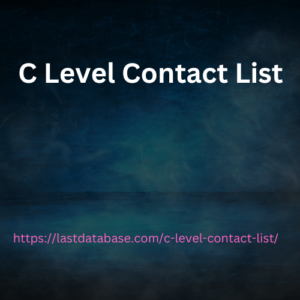Post by j7oyun55rruk on Dec 27, 2023 0:30:54 GMT -5
Don't overthink it now. When you encounter new words in the target language, ask yourself which words and phrases are most useful to me. This is one of the first rules of story learning. You must follow this example at all times. Suppose you are learning French because You want to retire to a village in the south of France. You are still a relative beginner. You are studying a popular French textbook. In a specific chapter of the book you learn the following French words that you may need to get through airport security.
Later that week you attend a language event and meet a friendly Frenchman C Level Contact List who lets you practice your French with him. As you get to know each other you will encounter words you don't know. Jot it down afterwards so you don't forget. to choose. Did you learn the textbook vocabulary about airport security or did you learn the words from conversations? The answer should be obvious. You may never need to speak French at airport security so the vocabulary will be of very low value.

At the same time the words in conversation will almost certainly come up again and may show up in your next chat so learning them will immediately help you speak better. Speak French This is one of the best ways to learn vocabulary. Despite this most people simply read chapter after chapter of textbooks blindly trying to learn everything they come across. This is not smart learning. So after you have chosen the relevant vocabulary to learn, your next task, just like Sherlock, is to familiarize yourself with your new words.
Later that week you attend a language event and meet a friendly Frenchman C Level Contact List who lets you practice your French with him. As you get to know each other you will encounter words you don't know. Jot it down afterwards so you don't forget. to choose. Did you learn the textbook vocabulary about airport security or did you learn the words from conversations? The answer should be obvious. You may never need to speak French at airport security so the vocabulary will be of very low value.

At the same time the words in conversation will almost certainly come up again and may show up in your next chat so learning them will immediately help you speak better. Speak French This is one of the best ways to learn vocabulary. Despite this most people simply read chapter after chapter of textbooks blindly trying to learn everything they come across. This is not smart learning. So after you have chosen the relevant vocabulary to learn, your next task, just like Sherlock, is to familiarize yourself with your new words.



